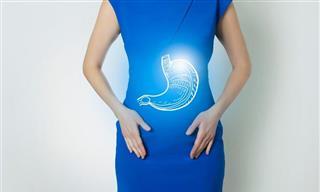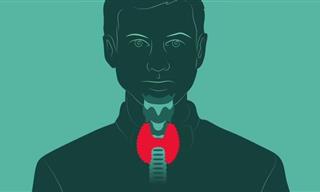Vitamin A

Some vitamins are tougher to get from the diet than others. When it comes to vitamin A, the risk of vitamin deficiency is very low. Moreover, taking vitamin A through supplements when your diet is already rich in this vitamin does more harm than good. Taking too much vitamin A can lead to headaches, dizziness, blurred vision, nausea, skin irritation, and joint pain. These symptoms can linger for a few days because vitamin A is fat-soluble and can stay in the fat cells of the body for a long time.
What does this all mean? Here’s a quick explanation.
Vitamins come in two varieties - water-soluble and fat-soluble. Now, this difference is very important for everyone to remember because fat-soluble vitamins can build up in the body and trigger toxic symptoms, causing a condition called hypervitaminosis. The risk of getting vitamin toxicity from water-soluble vitamins is very low, as any excess amounts are easily eliminated from the body through urine.
If you follow a Western diet, full of fresh vegetables and fruit, your chances of getting a vitamin A deficiency are extremely low. Read all about the food sources of vitamin A here - How to Get More Vitamin A In Your System
Vitamin C
Vitamin C supplements are touted as a popular cold medicine, but taking excessive doses will not make you recover faster or prevent colds - according to a 2013 review article that lists a number of experiments on the subject.
Generally speaking, getting the recommended 75 milligrams (mg) of vitamin C for women and 90 mg for men is very easy. Just one orange or red bell pepper contains more vitamin C than you need in a day. And taking any more of it will just be eliminated from your body through urine, so all those pricy vitamin C gummies and vitamins will literally go down the drain.
Biotin

Those looking to strengthen their nails and improve hair growth often turn to biotin supplements. Supplement companies will quote studies conducted on alopecia sufferers with a biotin deficiency who saw an improvement in hair regrowth after taking a biotin supplement to market their products. But this evidence doesn’t mean that biotin will be helpful for everyone who has thinning hair or brittle nails.
As Ginger Hultin, a dietitian and nutritionist, pointed out to The Healthy, “biotin, for example — unless there is an outright deficiency, it’s not proven to help.” Therefore, taking biotin if you’re not deficient in biotin won’t help regrow your hair. In fact, biotin deficiencies are rather rare because it is abundant in many everyday foods. Eggs, almonds, sunflower seeds, dairy, fish, broccoli, and spinach are just some examples.
Moreover, remember that overdoing it with biotin harms the body, causing stomach upsets, skin rashes, insulin release issues, and liver and kidney damage. So it’s best to stay away from biotin supplements - unless you’re truly deficient and were prescribed one by your doctor.
Most B vitamins

Like all of the nutrients we listed previously, the eight B vitamins are necessary for everyone’s health. Luckily, the majority of B vitamins, except for vitamin B12, can be easily procured from everyday foods like chicken, fish, and fruit and vegetables. Many grains are also fortified with B vitamins, which means that you’re already getting a B complex vitamin supplement built into your morning bowl of granola or a slice of whole-grain bread, even if you’re vegan.
Overdosing on B vitamins can also be quite dangerous. For instance, those who take excessive amounts of vitamin B6 can get neuropathic pain in the nerves, and men who take too much of this vitamin, in particular, have a higher risk of lung cancer.
There is no general recommendation to supplement any of these vitamins. All that being said, B vitamin deficiencies are a little more common than others, mainly in people who follow a vegetarian or vegan diet, older adults, and pregnant women. A general blood test will be able to show if you’re deficient in any B vitamins right away.
Vitamin E
Vitamin E oil can be safely used on your skin, but beyond the topical use, medical experts are increasingly telling laypersons to stay away from vitamin E capsules and focus on food sources of vitamin E instead. This shift is spurred by recent studies linking vitamin E supplements with an increased risk of cancer and death, especially in men.
The risk is the highest in people who take extremely high amounts of vitamin E - up to 400 International Units (IU) while the daily recommended intake is 22 IU. Luckily, vitamin E is very abundant in most nuts, seeds, cooking oils, and even vegetables like pumpkins, peppers, and avocados, so getting enough of it from foods isn’t a challenge at all.
Calcium
Calcium is essential for strong and healthy bones, but getting this nutrient from supplements may actually be harmful. "The newest research indicates that calcium supplements may not actually get into the bone as desired, and instead can calcify arteries and soft tissues, increasing your risk of heart disease," said Dr. Lorraine Maita, a diplomate of the American Academy of Anti-Aging and Regenerative Medicine to Prevention.com.
It’s also known that calcium supplements can lead to kidney stones in people at risk of this condition. Therefore, it’s so much safer to receive all the calcium you need from dairy, fish, beans, almonds, or even leafy green vegetables or broccoli.
Iron
Iron is another type of mineral supplement you should never start taking on your own, as it can be quite dangerous. Excessive intake of iron through supplements can create grave health effects. Even a minor overdose of iron leads to constipation or digestive issues.
But long-term overconsumption of this metal can damage the heart, trigger cirrhosis in the liver, and even contributes to certain cancers. So it’s highly advised to never start taking iron supplements without your doctor’s recommendation. And besides, it’s much safer to increase your iron levels through foods like dark chocolate, lentils, beef, chicken, beans, or even oysters.
Zinc
Like vitamin C, zinc is often considered to boost the immune system, which is why some zinc supplements now come in the form of a nasal spray. However, the Mayo Clinic warns that taking such nasal sprays with zinc can lead to a permanent loss of smell, so please avoid these completely. According to a recent review study that encompasses 28 trials, zinc doesn’t ease or prevent the symptoms of a cold, but it can slightly shorten the duration of the symptoms.
Although zinc is essential for everyone and has a plethora of health benefits, most adults get enough zinc from their diets. Learn which foods contain this essential nutrient here - This Nutrient Is Vital For Sharp Vision and Healthy Joints.
Antioxidant Blends
Antioxidants are pretty amazing, but excessive amounts of them can increase the risk of heart disease, and cancer, and they can mess with certain medications too. The problem lies within the supplements themselves, as manufacturers pack in extremely high doses of antioxidants in each pill, significantly more than you’d ever be able to take from natural sources. As the famous saying goes, the dose makes the poison.
If you want to experience all the anti-inflammatory benefits of antioxidants, it’s much better to get them from a variety of natural sources, such as fruits, vegetables, or even “guilty pleasures” like coffee or dark chocolate.
Iodine

Back in the 1990s, iodine tablets and iodized salt were recommended for people all across Europe and the former USSR. The reason behind this was not the low iodine soil content in these areas of the world. It was the Chornobyl Nuclear Disaster, in the aftermath of which thyroid cancer risks have skyrocketed. Iodine supplementation was used to help prevent this life-threatening condition.
And this grave example from history only goes to show that blanket iodine supplementation recommendations are not made lightly. In fact, taking too much iodine can cause an underactive thyroid, also known as hypothyroidism. Other symptoms of iodine toxicity are headaches, an upset stomach, and a runny nose. Medical experts warn that you should never take iodine supplements without your doctor’s recommendation.
Multivitamins
A multivitamin a day keeps the doctor away, right? If only things were so simple, then doctors would have recommended them to all of us. Yet, you rarely catch doctors taking multivitamins themselves, let alone recommending them to clients. The rare exceptions are some patients who have severe digestive issues like Crohn’s disease, or Celiac. Not only are multivitamins underregulated, so you never really know what they contain, but they also often contain heavy metals that our body only needs in trace amounts. Taking excessive amounts of such metals like nickel, copper, and chromium with your multivitamin makes them deposit in your tissues. In fact, some researchers even link such heavy metal deposits in the brain to dementia.
The bottom line is, like any other aspect of your health, nutrient supplementation should be matched to your body, lifestyle, and individual needs. A tailored approach where your specific medical needs are met will be the best for your short- and long-term wellbeing.
H/T: The Healthy, Insider, Prevention, Sharecare, Verywell Health
 Go to BabaMail
Go to BabaMail


































